Parents of children aged five to 11 seem to be evenly split on whether or not their kids will be receiving a COVID-19 vaccine, a new poll finds.
The survey, from Axios/Ipsos, was conducted in the days following the announcement from Pfizer Inc and BioNTech SE that their Covid vaccine appeared to be safe and effective in younger kids.
About 40 percent of parents said it was ‘likely’ their children would be getting vaccinated – and roughly the same number said it was ‘unlikely.’
Over the last few weeks, coronavirus cases among children have been declining after reaching record-high levels earlier this month.
Additionally, although kids can contract Covid, most pediatric cases are not severe and virus-related fatalities among children are rare with pediatric deaths making up just 0.1 percent of all COVID-19 deaths.
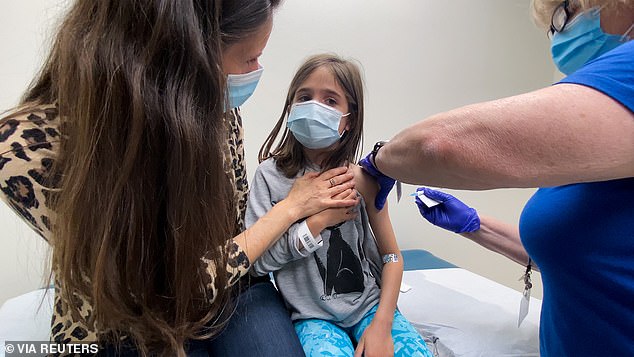
A new poll asked parents of children between ages five and 11 how likely they are to have their kids vaccinated against COVID-19. Pictured: Marisol Gerardo, 9, is held by her mother as she gets takes part in Pfizer’s Covid vaccine clinical trial for children at Duke Health in Durham, North Carolina, April 2021
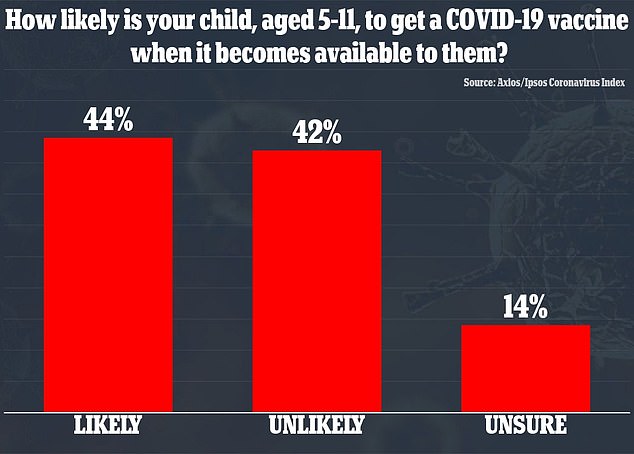
A total of 44% percent said their child was likely to get a vaccine and 42% said it was unlikely their kids would be immunized
For the poll, 1,105 adults aged 18 and older were surveyed in English or Spanish between September 24 and September 27.
It’s unknown how many of the adults who were surveyed had children.
Parents were asked how likely, if at all, their child was to get a COVID-19 vaccine when it becomes available.
Among mothers and fathers of kids aged five to 11, 44 percent said their child was likely to get a vaccine and 42 percent said it was unlikely.
The remaining 14 percent were either unsure or skipped the question.
Overall, among all parents with children under age 18 – including 12-to-17-year-olds for whom vaccines are approved – 57 percent said their child was likely to be vaccinated or already had.
On Tuesday, Pfizer and BioNTech submitted initial data to U.S. regulators for their COVID-19 vaccine in children aged five to 11 – but approval may not come for many weeks.
The companies sent data to the Food and Drug Administration (FDA) for review, and said they would make a formal request for emergency use authorization in the coming weeks after originally saying they would file by the end of September.
This led many to assume that elementary school kids could start receiving their shots as soon as late October.
However, a person familiar with the matter told The Wall Street Journal on Tuesday that Pfizer and BioNTech may not complete their application until mid-October.
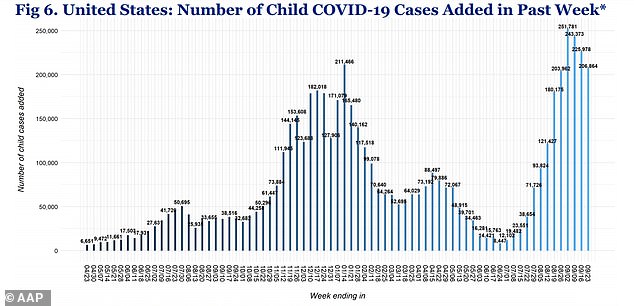
Many parents have been hesitant to vaccinated their children due to pediatric cases declining – from 225,000 to 206,000 in one week – and because kids make up less than 0.1% of all COVID-19 deaths
That means the FDA may not decide to approve the vaccine until sometime between Halloween and Thanksgiving.
Recently released data showed the vaccine induced a ‘robust’ immune response in younger kids, Pfizer said.
But parents are divided on the issue mainly due to the low risk of severe diseas seen in children.
Pediatric cases are continuing to decline with 206,000 recorded last week, a 8.4 percent decline from the 225,000 cases recorded the week before, according to a new report from the American Academy of Pediatrics (AAP).
Additionally, 498 children have died from COVID-19 since the pandemic began, meaning pediatric deaths make up fewer than 0.1 percent of all deaths in the U.S.
That means the FDA may not decide to approve the vaccine until sometime between Halloween and Thanksgiving.
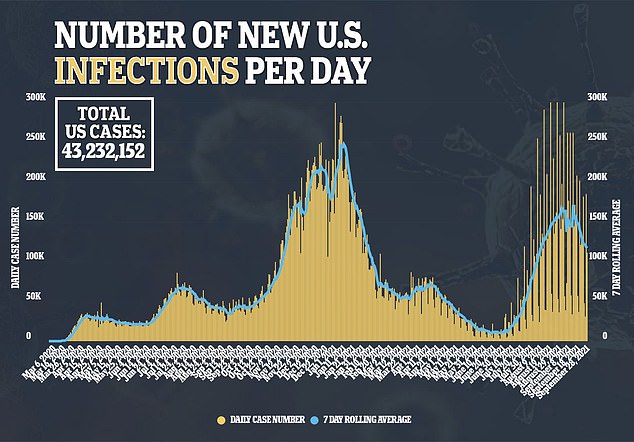
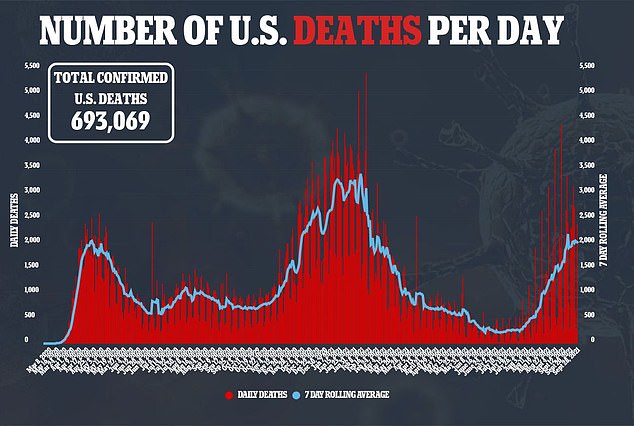
The poll also asked parents how risky they believed sending their kids to school this year is.
A total of 19 percent said they believed schools posed a large risk, a large drop from 38 percent who said the same thing last month.
Meanwhile, 44 percent said schools either posed a small or no risk to their kids, up from 31 percent in August.
Most parents also seemed comfortable letting their kids go trick-or-treating for Halloween with 68 percent it posed a small or no risk.
Just 13 percent said it was a large risk, down from 25 percent who reported feeling the same way last October.
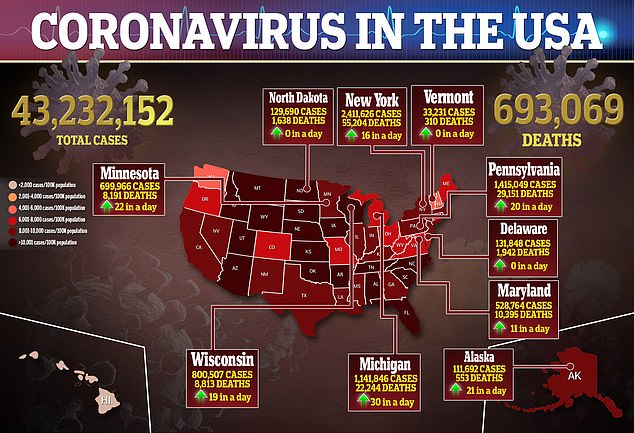
Source link : https://www.dailymail.co.uk/health/article-10042029/Parents-children-aged-5-11-split-50-50-not-vaccinate-kids.html











